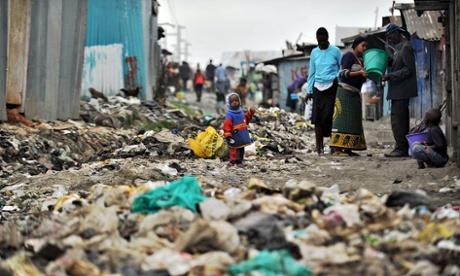
Happy World Toilet Day! Most people living in high income countries, probably won’t have thought twice about the convenience of it when sitting on the throne this morning. But for the 2.5 billion in the world without access to proper sanitation, it is a serious health issue.
One billion people have no alternative to open defecation and sanitation has proved the most intractable of the Millennium Development Goals. The business world is stepping in. Launched today, the Toilet Board Coalition brings together a range of businesses, NGOs and water, sanitation and hygiene (WASH) experts united by the same belief: that sustainable solutions must be market-driven.
Chaired by Unilever, its members include US sanitation giant Kimberly Clark, Japanese toilet maker LIXIL, German chemicals and odour company Firmenich, and NGOs such as WaterAid, World Toilet Organisation and Water and Sanitation for the Urban Poor (WSUP).
“It is a big issue, but there is a bigger opportunity for business to sort it out”, says its chair, Jean-Laurent Ingles, global SVP household care for Unilever. “This means approaches that are businesses, with reduced or no aid gap. We know how to create demand, we know how to do the marketing, and we have huge R&D capabilities... designing the types of product that people want.”
The coalition will provide significant expertise and support infrastructure to four pilot sanitation business models. The first, already established, is the Clean Team project in Kumasi, Ghana. Run by WSUP using Unilever-designed chemical home toilets, it offers a private, clean and cheap alternative to paid-for public toilets. The customer pays monthly for the service of having the waste cartridges removed every two or four days. So far it has been taken up in 700 homes, employing 35 largely local people as sales and operational staff.
Helping Clean Team reach a scale that is self-financing (it is currently funded by the Stone Family Foundation and DfID), and adapting similar models for other geographies, is the goal for the next two years. A potential roll-out in Manila, Philippines, is being evaluated, as are rural solutions for areas in India, Bangladesh and Cambodia.
Neil Jeffery, CEO of WSUP, believes that business acumen has long been the missing link in the WASH agenda. He criticises a “lack of recognition that low income people are actually consumers” and “seeing people as poor and therefore the recipients of aid.” Clean Team’s marketing isn’t about “flashy adverts”, he says, but rather “folks that come from those areas with a good understanding of the customer need, going door-to-door and talking to people about how this product could change their life.”
A report by HYSTRA, the environmental consultants, commissioned by the Toilet Board Coalition, goes a step further by recommending services such as Clean Team are piggy-backed by, “a dedicated team of cash collectors... using their customer visits to generate additional revenue, in particular by selling a range of hygiene products (eg soap, detergent, etc).”
For the sceptics of big business, this rings alarm bells. This is making money from the world’s poor, and doing so brazenly. Wouldn’t the coalition’s collective riches be better used by giving away toilets for free?
“First of all there is just not enough money in the world to give 2.5 billion people a toilet”, argues John Stone, whose Stone Family Foundation concentrates on market-based WASH solutions. “There are also examples of people who have been given a brick-built toilet and decide it’s the safest place to store their rice. Whereas if they have paid money for a toilet it means they want a toilet, and they will use it.
“What we are also trying to do is set up the supply side... to help entrepreneurs get into the business [of] producing, manufacturing and selling latrines. That creates employment, and potentially a supply-side structure which when working well doesn’t require further funding because it’s a really good business.”
Ultimately success will be measured when such businesses become self-sufficient, driven by local demand. Unilever, Kimberly-Clark and others would happily say that, if it’s their products they are selling, then all the better.
“We want to assist low income consumers to have access to buy as many services as possible that are suitable for them in terms of enhancing their sanitation and water needs”, explains Jeffery. “If you bring the low income consumer into the core activity of a regular business rather than as an add-on, philanthropic programme, it means that ultimately those [consumers] will be taken seriously and their needs responded to.”
Read more stories like this:
- Ebola is a product of a destructive and exploitative global economic system
- Developing nations lose $100bn in tax revenue each year - will G20 reforms help?
- Brought to you by Business Call to Action: From emerging to multinational: leaders shaping new models to meet the BoP
The role of business in development hub is funded by Business Call to Action. All content is editorially independent except for pieces labelled ‘brought to you by’. Find out more here.
Join the community of sustainability professionals and experts. Become a GSB member to get more stories like this direct to your inbox

